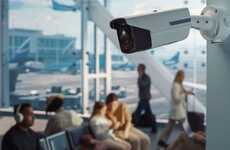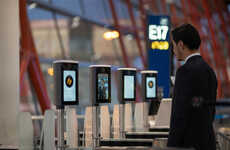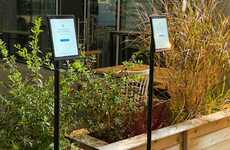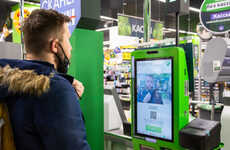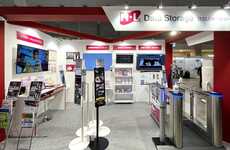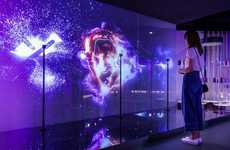
Bristol Robotics Lab is Developing the Future of Ticketing in the UK
Laura McQuarrie — July 29, 2017 — Tech
The UK's Bristol Robotics Lab is developing a facial recognition system that may have the potential to usher in the future of ticketing.
The system is currently being designed to replace the need for tickets on trains in the UK, and uses two near-infrared lights to help a camera pick up on the unique texture and orientations of the pixel that make up a face. Since everyone—including twins—has a completely unique three-dimensional facial structure, the system is able to recognize individuals, even if they are wearing glasses. As such, the advanced system will not recognize photos of faces, as they lack dimension.
The development of the facial recognition ticketing system has the potential to completely replace tokens, paper tickets and plastic cards when it comes to permitting entry to a secure space.
The system is currently being designed to replace the need for tickets on trains in the UK, and uses two near-infrared lights to help a camera pick up on the unique texture and orientations of the pixel that make up a face. Since everyone—including twins—has a completely unique three-dimensional facial structure, the system is able to recognize individuals, even if they are wearing glasses. As such, the advanced system will not recognize photos of faces, as they lack dimension.
The development of the facial recognition ticketing system has the potential to completely replace tokens, paper tickets and plastic cards when it comes to permitting entry to a secure space.
Trend Themes
1. Facial Recognition Ticketing - Creating a new method of ticketing through facial recognition technology.
2. Near-infrared Facial Recognition - Developing facial recognition systems using near-infrared lights for improved accuracy.
3. 3D Facial Recognition - Advancing the technology of facial recognition to three dimensions for improved security measures.
Industry Implications
1. Public Transportation - Transforming the way people pay for and access public transportation in a more efficient and secure way.
2. Event Venues - Providing a more streamlined and secure entry process for crowded event venues, such as concerts and sports stadiums.
3. Airports - Developing a more efficient and personalized security system for airport check-in and boarding processes.
2.4
Score
Popularity
Activity
Freshness



